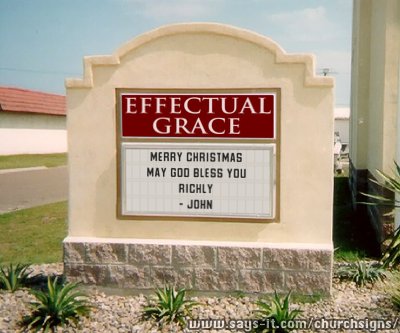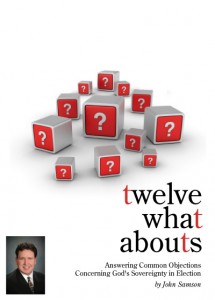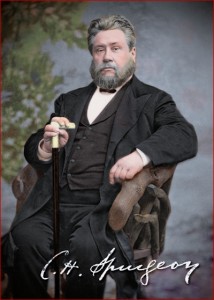 Before we leave all thoughts about Christmas behind for another year…
Before we leave all thoughts about Christmas behind for another year…
“Think about the familiar words from Luke 2. If you study other religions and read about the birth of Hercules or the birth of the gods in Hinduism or the birth of the gods in Shintoism the stories are nothing like Luke 2.
In those days [a certain time in history] a decree [something that the Romans issued from time to time…] went out from Caesar Augustus [a known world figure] that all the world should be registered. This was the first registration when Quirinius was governor of Syria [an extra bit of history which shows that Luke is trying to be meticulous, even if scholars today aren’t sure where to place Quirinius chronologically]. And all went to be registered, each to his own town. And Joseph [a historical person] also went up from Galilee [a specific region], from the town of Nazareth [a specific town], to Judea [another specific region], to the city of David [more historical background], which is called Bethlehem [another specific town we have record of], because he was of the house and lineage of David, to be registered with Mary, his betrothed, who was with child [more background information]. And while they were there, the time came for her to give birth. And she gave birth to her firstborn son and wrapped him in swaddling cloths and laid him in a manger, because there was no room for them in the inn.
There is nothing in here that sounds like fairy tale and everything to prove that Luke means this to be verifiable, accurate, precise, historical fact.”
– Kevin DeYoung

 “He was poor, that He might make us rich. He was born of a virgin that we might be born of God. He took our flesh that He might give us His Spirit. He lay in the manger that we might lie in paradise. He came down from heaven that He might bring us to heaven.
“He was poor, that He might make us rich. He was born of a virgin that we might be born of God. He took our flesh that He might give us His Spirit. He lay in the manger that we might lie in paradise. He came down from heaven that He might bring us to heaven. This week I was singled out for attack by a former professing Christian apostate Paul Williams now Muslim Sam Shamoun kindly sent me a link to rebuttals he has provided to Mr Williams over time. Sam covers such subjects as:
This week I was singled out for attack by a former professing Christian apostate Paul Williams now Muslim Sam Shamoun kindly sent me a link to rebuttals he has provided to Mr Williams over time. Sam covers such subjects as: (1) A comprehensive teaching series is now available to listen to called “Theological Foundations of the Reformation” by Derek W.H. Thomas. It is well worth checking out Ligonier has some excellent deals today in this week’s $5 Friday sale. The online sale starts at 8 a.m. EST and goes on for 24 hours or until items are sold out. Dr. James White started a review of James McCarthy’s recent sermon on “Calvinism” on a special pre-Christmas Radio Free Geneva. He will continue his examination in future webcasts!
(1) A comprehensive teaching series is now available to listen to called “Theological Foundations of the Reformation” by Derek W.H. Thomas. It is well worth checking out Ligonier has some excellent deals today in this week’s $5 Friday sale. The online sale starts at 8 a.m. EST and goes on for 24 hours or until items are sold out. Dr. James White started a review of James McCarthy’s recent sermon on “Calvinism” on a special pre-Christmas Radio Free Geneva. He will continue his examination in future webcasts!  I quote the following article with this as a word of introduction:
I quote the following article with this as a word of introduction: With my new book “Twelve What Abouts – Answering Common Objections Concerning God’s Sovereignty in Election” due to be published in early January, 2012, I thought it would be helpful to provide something of a window as to my purpose in writing it. Here’s an introductory chapter entitled “A Word to the Reader”:
With my new book “Twelve What Abouts – Answering Common Objections Concerning God’s Sovereignty in Election” due to be published in early January, 2012, I thought it would be helpful to provide something of a window as to my purpose in writing it. Here’s an introductory chapter entitled “A Word to the Reader”: THE PRINCE OF PREACHERS – Charles Haddon Spurgeon (1834-92) was England’s best-known preacher for most of the second half of the nineteenth century. In 1854, just four years after his conversion, then only 20, became pastor of London’s famed New Park Street Church (formerly pastored by the famous Baptist theologian John Gill). The congregation quickly outgrew their building, moved to Exeter Hall, then to Surrey Music Hall.
THE PRINCE OF PREACHERS – Charles Haddon Spurgeon (1834-92) was England’s best-known preacher for most of the second half of the nineteenth century. In 1854, just four years after his conversion, then only 20, became pastor of London’s famed New Park Street Church (formerly pastored by the famous Baptist theologian John Gill). The congregation quickly outgrew their building, moved to Exeter Hall, then to Surrey Music Hall.